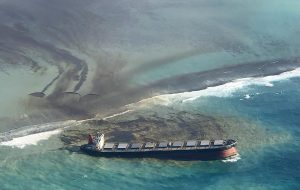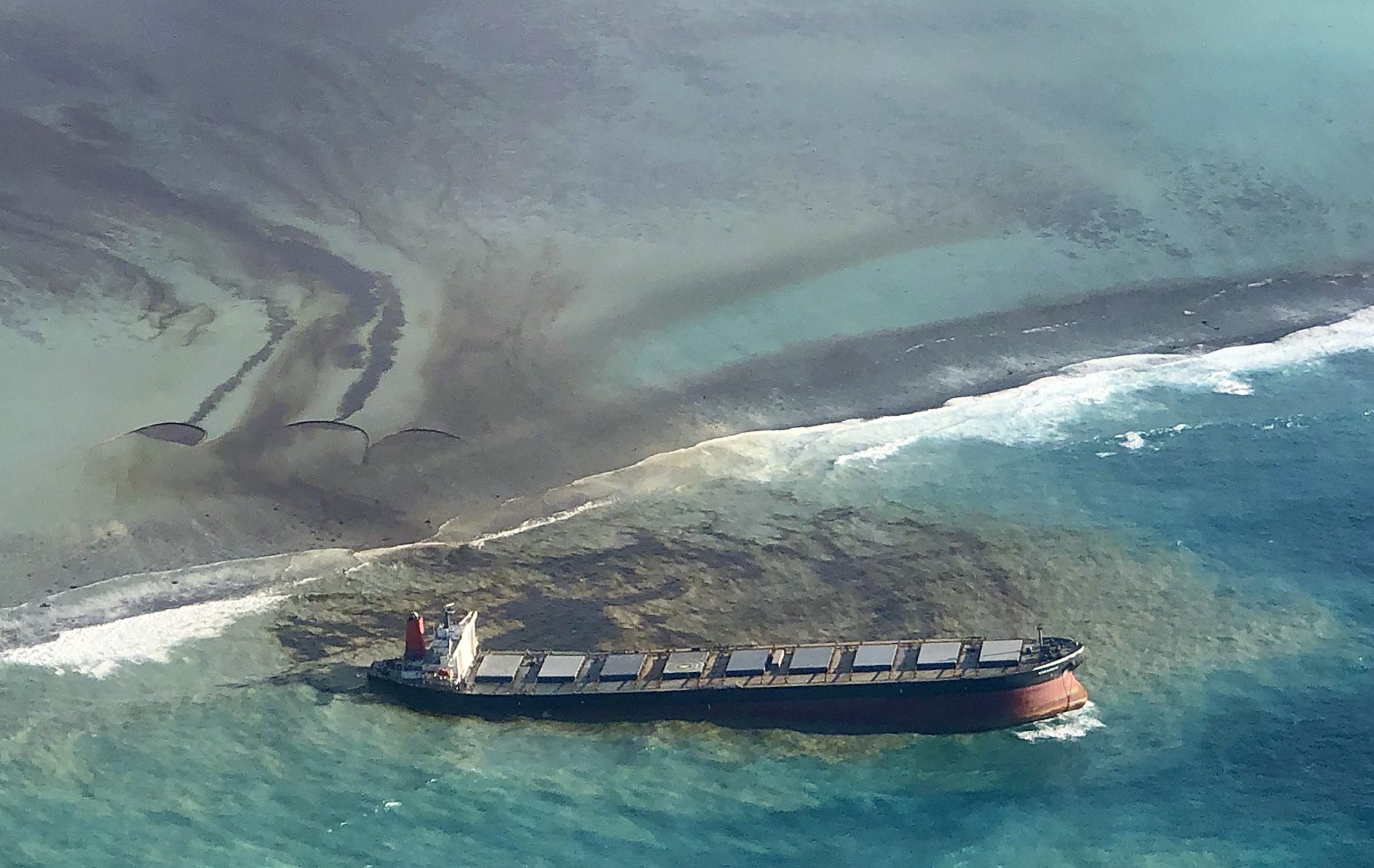Oil pollution from ships has long been recognized as one of the most serious environmental threats posed by the maritime industry. Accidental oil spills and operational discharges from commercial vessels can have devastating consequences on marine ecosystems, coastal environments, and local economies. With global trade heavily reliant on commercial shipping, the risk of oil pollution persists despite stringent international regulations and technological advancements. This article explores the causes of oil pollution from commercial ships, its impacts, and the measures in place to prevent and mitigate such incidents.

Causes of Oil Pollution from Commercial Ships
Oil pollution from commercial vessels can occur due to a variety of factors, ranging from operational practices to accidents. The main sources of oil pollution from ships include:
- Operational Discharges:
- Ballast Water: Commercial vessels take on ballast water to maintain stability when they are not carrying cargo. This water is often contaminated with oil residues that can be discharged into the sea when the ship releases the ballast water, leading to pollution.
- Bilge Water: Bilge water accumulates in the lowest part of the ship, mixing with oil, fuel, and other residues from the machinery and engine room. Although there are systems in place to treat bilge water before it is discharged, improper management or malfunctioning equipment can result in oil pollution.
- Tank Washing Operations: Oil tankers periodically clean their cargo tanks to prevent contamination of future loads. If not properly regulated, the wastewater from this cleaning, which often contains oil residues, can be discharged into the sea, contributing to pollution.
- Fuel Handling: Commercial ships burn large quantities of fuel, and spills or leaks can occur during fuel transfer operations, such as refueling in port or at sea. Poor maintenance of fuel handling systems or human error during bunkering can lead to oil discharges into the marine environment.
- Accidental Oil Spills:
- Grounding or Collisions: Grounding occurs when a ship runs aground, damaging its hull and potentially causing oil to leak from the fuel tanks or cargo hold. Collisions between ships or between ships and structures (like docks or reefs) can also result in significant oil spills.
- Hull Damage: A breach in the ship’s hull can lead to the release of oil, particularly if the damage affects the fuel tanks or cargo tanks. This can occur due to poor weather conditions, mechanical failure, or structural weaknesses.
- Oil Tanker Accidents: Oil tankers carry large volumes of crude oil and refined petroleum products, making them the highest-risk commercial vessels for catastrophic oil spills. A single accident involving an oil tanker can release thousands of tons of oil into the ocean, as seen in several major incidents over the decades.
- Mechanical Failures:
- Engine Room Leaks: A failure in the ship’s engine room can lead to oil leaks from machinery or fuel systems. These leaks can spread to the bilges and eventually be discharged into the ocean if not properly managed.
- Tank Breaches: Leaks from storage tanks on board ships, either due to mechanical failure or poor maintenance, can result in oil entering the water.
- Illegal Discharges:
- Deliberate Oil Dumping: In some cases, ship operators may illegally discharge oily waste or bilge water at sea to avoid the costs and time associated with proper disposal at port facilities. Although this practice is heavily regulated, it still occurs in areas where enforcement may be weak or where ships operate under less stringent flags of convenience.
Impacts of Oil Pollution
The impacts of oil pollution from commercial ships can be wide-ranging and long-lasting, affecting marine ecosystems, human health, and economies dependent on the sea.
- Environmental Impacts:
- Marine Life: Oil spills are toxic to marine organisms. When oil enters the ocean, it forms a slick on the water’s surface, preventing sunlight from reaching below and disrupting photosynthesis in marine plants and algae. Oil can coat the feathers of seabirds, reducing their ability to insulate themselves and causing hypothermia. Marine mammals such as seals and dolphins can suffer from ingestion or inhalation of toxic fumes, while fish and invertebrates may die from exposure to oil-contaminated water.
- Habitat Destruction: Oil pollution can severely damage sensitive ecosystems such as coral reefs, mangroves, and estuaries. These areas serve as critical breeding and feeding grounds for a wide range of species. Oil can smother coral reefs, killing the coral polyps, and contaminate mangroves, causing long-term damage to these vital coastal ecosystems.
- Toxicity and Bioaccumulation: Oil contains toxic compounds, such as polycyclic aromatic hydrocarbons (PAHs), that can accumulate in the tissues of marine organisms. These toxins can move up the food chain, affecting predators, including humans who consume contaminated seafood.
- Economic Impacts:
- Fisheries and Aquaculture: Oil spills can devastate commercial fisheries and aquaculture operations. Contaminated waters can lead to fish kills, damage to fishing gear, and loss of income for local fishing communities. The long-term impacts of oil pollution can also affect fish reproduction and population recovery.
- Tourism: Coastal tourism is often heavily reliant on clean beaches and pristine waters. Oil pollution can drive away tourists, leading to significant economic losses for coastal communities that depend on tourism. Cleanup efforts can take months or even years, leaving affected areas struggling to recover.
- Cost of Cleanup: The financial costs of oil spill cleanup operations are substantial. They require specialized equipment, personnel, and long-term monitoring to mitigate the damage caused. These costs often fall on shipowners, insurance companies, and governments.
- Human Health:
- Direct Exposure: People living or working near oil spills can be exposed to harmful chemicals, either by inhaling toxic fumes or through direct skin contact. Cleanup workers and coastal communities are particularly vulnerable to the health effects of oil exposure, including respiratory issues and skin irritations.
- Food Safety: Oil-contaminated seafood poses a significant risk to public health. The accumulation of toxic substances in fish and shellfish can make them unsafe to eat, leading to long-term health consequences for people who rely on seafood as a dietary staple.
International Regulations and Preventive Measures
In response to the threat of oil pollution, international maritime organizations and governments have introduced stringent regulations and technologies aimed at reducing the risk of oil spills and operational discharges from commercial ships.
- International Convention for the Prevention of Pollution from Ships (MARPOL):
- The MARPOL Convention is one of the most important international agreements governing ship pollution. Under MARPOL Annex I, ships are required to have equipment and systems in place to prevent oil pollution, including oily water separators, oil discharge monitoring equipment, and proper waste management systems.
- Oil Record Books: MARPOL also mandates that ships keep detailed records of all oil-related operations, including bunkering, bilge water management, and oil discharge. These records are subject to inspection by port authorities and are crucial for enforcing compliance.
- Oil Spill Response Plans:
- Ships, particularly oil tankers, are required to carry Shipboard Oil Pollution Emergency Plans (SOPEP), detailing the procedures to follow in the event of an oil spill. These plans include emergency contact information, response protocols, and strategies to contain and clean up spills.
- Port State Control (PSC): Coastal states can enforce international regulations through port inspections and audits of vessels. PSC inspectors check that vessels are in compliance with MARPOL and other environmental regulations before allowing them to operate in their waters.
- Technology and Ship Design:
- Double Hulls: One of the most effective technological advancements in reducing oil spills from oil tankers is the introduction of double-hull designs. A double hull provides an additional layer of protection between the oil cargo and the external environment, reducing the risk of spills in the event of a collision or grounding.
- Oily Water Separators (OWS): Commercial ships are equipped with OWS systems that separate oil from bilge water before it is discharged overboard. These systems are designed to ensure that discharged water contains no more than 15 parts per million (ppm) of oil, a standard set by MARPOL.
- Oil Discharge Monitoring and Control Systems: Modern ships are equipped with automatic monitoring systems that prevent the discharge of oil beyond permitted levels. These systems can detect oil content in wastewater and automatically shut off discharge if levels exceed legal limits.
- Oil Spill Contingency Planning:
- Coastal nations and shipping companies are required to have oil spill contingency plans in place. These include deploying booms, skimmers, and dispersants in the event of a spill. Quick response teams are trained to contain the spill and prevent it from spreading to vulnerable areas.
- Satellite Monitoring: Advances in satellite technology have allowed authorities to monitor ship movements and detect illegal discharges of oil at sea. Ships are tracked, and any oil slicks can be quickly investigated to identify the responsible vessel.
Conclusion
Oil pollution from commercial ships remains a significant environmental challenge, but ongoing improvements in regulations, ship design, and technology have helped reduce the frequency and severity of oil spills. Through international cooperation and adherence to conventions like MARPOL, the maritime industry is working toward minimizing the risks associated with oil pollution. However, the potential for accidents and operational discharges still exists, and the impacts of such incidents on marine ecosystems, economies, and human health can be devastating. Continued vigilance, enforcement of regulations, and investment in spill prevention technologies are essential to protecting the oceans and ensuring sustainable maritime operations.


Thanks a lot.